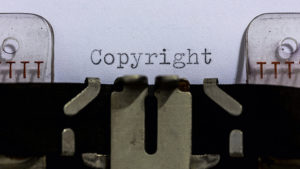Have you ever wondered whether you should apply for a copyright? What does a copyright
cover? How do you go about getting one?
If you’ve ever pondered these questions, the following description of copyright functions and how they apply to freelancers may provide some guidance.
1. What is a Copyright?
Formal copyright protection applies to original works of authorship, including literary, musical, and pictorial works, as well as others listed in Title 17 of the United States Code. Common items that freelancers may need to have copyrighted are websites, blogs, and other publications.
Keep in mind that a copyright is different from a trademark, which applies to names, titles, and logos; and a patent, which applies to invented processes, machines or designs.
2. Why Should I Apply for a Copyright?
There are two main reasons to consider applying.
a) To protect your original content.
Registration with the US Copyright Office can serve as evidence in your favor in case of a copyright infringement dispute; can dissuade potential plagiarists who find your work(s) in the federal registration database; and can protect your clients in case of infringement. Taking the relatively simple steps to apply for a registered copyright can provide peace of mind and extra protection for the work that you have diligently invested time, and possibly money, to create. While copyright ownership of the original work arises when the work is initially created, copyright registration serves as an official record of the date the work was created and gives notice of the owner’s claim to the copyright. If you ever intend to enforce your copyright ownership against infringement, it should be registered.
Take note that employees may not have copyright ownership over “works for hire,” which include original content created for an employer. In that case, the employer likely owns the copyright. Employer contracts and independent contractor agreements frequently address these issues, so be sure to review them carefully when entering a new agreement.
b) You can enjoy additional income opportunities through licensing.
In addition to protecting your work product, copyrights allow the owner to issue paid licenses to approved users as a source of extra income. For instance, that insightful article you drafted about craft brewing in East Austin can be licensed to a nationwide blogger to publish for an agreed price. The license can be as limited or broad as the licensor (copyright owner) determines.
3. How Do I Register a Copyright?
Once you decide to apply for copyright registration, the process is relatively simple. You can apply electronically through the United States Copyright Office by registering with the website, uploading the applicable documents for copyright, and submitting the appropriate fee.
Single document copyright registrations currently require a $35 filing fee, though group registrations for periodical publications and other types of registrations may have higher fees. After the application and fees are submitted, an attorney for the Copyright Office will review the application and register the copyright if approved. The review process can take several months, but the registration will be listed from the time of initial submission.
4. Doesn’t Using the © Symbol Get the Job Done?
Yes and no. A copyright is not federally registered unless you apply and receive approval through the US Copyright Office. However, using the © symbol does assert ownership of the work that it references and can deter would be infringers from doing so. Again, you should register the copyright in order to preserve evidence of your ownership to make a claim of infringement.
So there you have it. Copyrights inherently belong to the creator, but registration is relatively simple and can be a very helpful tool to protect your creations. For additional questions, please contact Emily Morris, JD.
* This is the second of several installments related to intellectual property laws for freelance workers. You can find the first on trademarks here.
- Intellectual Property for Freelancers: I Created It, So I Own It …. I Think - July 29, 2016
- Trade Secrets:The “Dark Side” of Intellectual Property - May 20, 2016
- Copyrights for Copywriters and Other Freelancers - March 15, 2016

